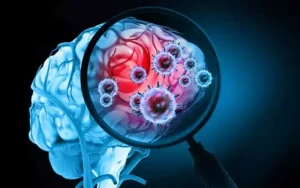Conditions like obesity and type 2 diabetes are known to increase the risk of memory loss and changes in behavior, which are typical signs of dementia. Among various types of dementia, Alzheimer’s disease and vascular dementia are the most common.
Obesity can harm the brain in several ways, including affecting memory functions, reducing brain size, causing inflammation, and leading to nerve cell damage, which can contribute to Alzheimer’s and other forms of dementia.
People with type 2 diabetes often have obesity, especially around their middle, and this is closely linked to insulin resistance in the body. This kind of obesity can also cause brain abnormalities, memory problems, and increase the chances of developing dementia, regardless of how severe the obesity is.
Being overweight can also lead to insulin resistance in the brain. Although insulin resistance in the body and brain isn’t always directly related, they are connected and strongly linked to Alzheimer’s disease.
A URV-led study reveals the mechanism connecting high-fat diets and Alzheimer’s. It examines how such diets affect specific molecules in blood and brain tissues, which serve as markers and regulators of the disease.
Led by Mònica Bulló, a professor at URV’s Department of Biochemistry and Biotechnology and member of TecnATox, the study collaborated with the Pere Virgili Health Research Institute (IISPV), CIBERobn, and the University of Barcelona. Published in Nutrients, the research focused on mice models developing Alzheimer’s in adulthood.
Prior studies on these mice revealed that a high-fat diet accelerated Alzheimer’s onset. However, the underlying mechanisms remained elusive until now.
The team analyzed 15 miRNAs, crucial RNA molecules, in plasma and brain tissues. They observed changes in insulin-related miRNAs in Alzheimer’s-prone mice not on a low-saturated fat diet.
After six months on this diet, the mice’s metabolism deteriorated: they gained significant weight, and their response to glucose and insulin decreased, mirroring characteristics seen in obesity or type 2 diabetes.
Additionally, researchers observed alterations in various miRNAs present in both blood and brain. These changes were associated with processes implicated in brain damage, including the buildup of β-amyloid plaques (protein deposits in the brain indicative of Alzheimer’s), excessive tau protein production (linked to brain cell damage), and brain inflammation.
“This study’s findings mark a significant advancement in our comprehension of this disease and potentially elucidate the connection between obesity, type 2 diabetes, and Alzheimer’s onset. Moreover, they identify new avenues for potential disease prevention and treatment,” noted researcher Bulló.
Beyond shedding light on how a high-fat diet impacts brain health, the study paves the way for future investigations into dietary interventions for Alzheimer’s treatment. It underscores the importance of a well-rounded diet in warding off neurodegenerative disorders and underscores miRNAs as potential targets for therapeutic strategies.
Read More : A self-test using a smartphone can detect initial indicators of Alzheimer’s disease
Reference
https://medicalxpress.com/news/2024-04-mechanism-links-diet-rich-fats.html










